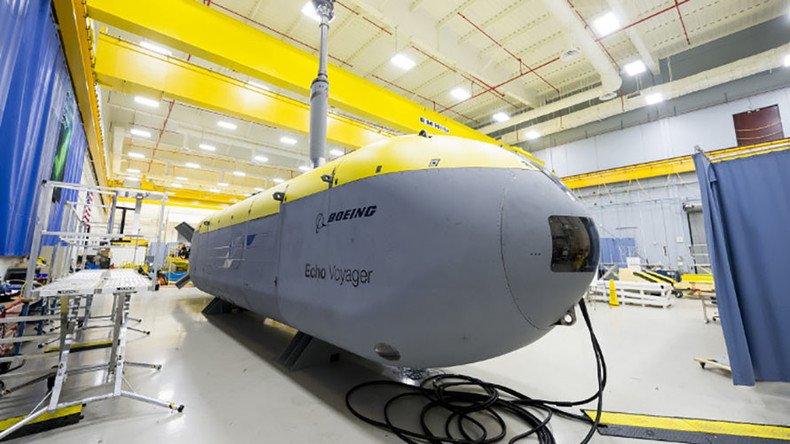Water drone: Boeing launches incredible unmanned super-submarine (VIDEO)

A new super-submarine, capable of operating without human interaction for months at a time, could redefine sub-aquatic exploration missions - not to mention marine warfare.
The 51ft-long Echo Voyager is the latest unmanned submarine to be created by Boeing, which claims it will change the way reconnaissance, deep sea research and even military missions are conducted beneath the waves.
The Echo Voyager operates using a hybrid electric-fuel system, allowing it to recharge and remain submerged for at least six months.
Unlike other unmanned underwater drones, this device can be launched without support ships.
Meet #EchoVoyager, #Boeing’s fully autonomous XL Unmanned Undersea Vehicle: No launch/recovery vehicles needed. pic.twitter.com/HGVkRhmRJk
— Boeing Defense (@BoeingDefense) March 10, 2016
Boeing hopes the development will be used for research or military purposes by its customers, such as the US Navy, since it can transmit information from the sea floor in “near real-time.”
The global aerospace and defense manufacturer has already received millions in revenue from the US government for projects including its JDAM rocket guidance kits, as well as the Harpoon Block II missile, which can be fired at enemy vessels from submarines.
Today #Boeing welcomes a new Unmanned Undersea Vehicle to the
— Boeing Defense (@BoeingDefense) March 10, 2016
family. Watch this feed to learn more. pic.twitter.com/VBiYvQ1knJ
With a dive depth of about 11,000ft, the Echo Voyager is the culmination of many years’ work on a line of autonomous Boeing subs.
The previous Echo Ranger and Echo Seeker were both smaller than the Echo Voyager, and could only remain at sea for two to three days.
“Echo Voyager can collect data while at sea, rise to the surface, and provide information back to users in a near real-time environment,” said Lance Towers, of Boeing Phantom Works.
“Existing UUVs require a surface ship and crew for day-to-day operations. Echo Voyager eliminates that need and associated costs.”
The large underwater vehicle will begin testing off the coast of California this summer.













